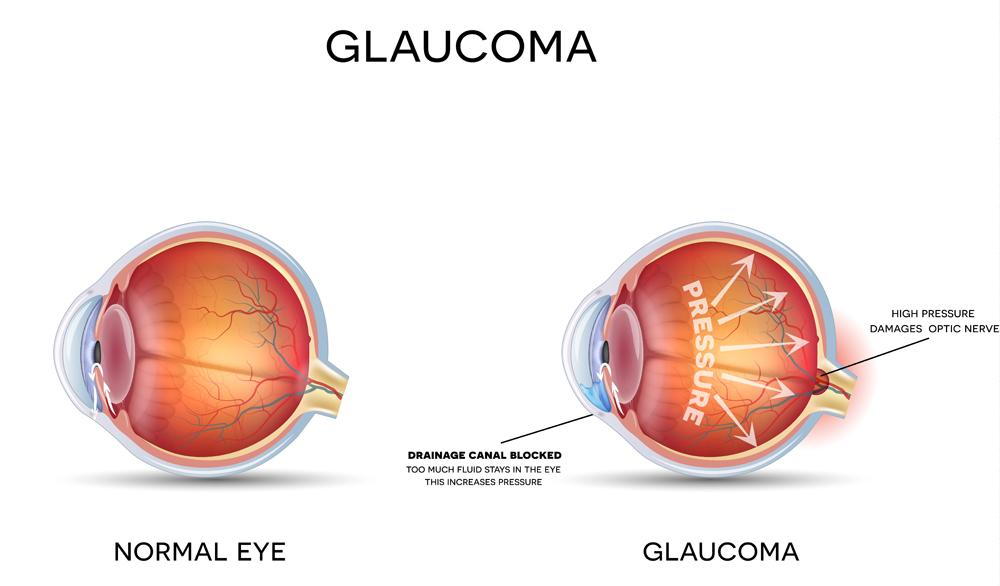
- posted: Apr. 29, 2020
There are two major types of Glaucoma. The first and most common type is open-angle Glaucoma, which occurs gradually when the eye doesn’t drain fluid properly, such as a clogged drainage canal. Eye pressure builds slowly, and begins to damage the optic nerve. At first, open-angle Glaucoma is painless, and causes no vision changes, but as it progresses, people will typically begin to lose their peripheral (side) vision, giving them tunnel vision. Eventually, if it remains untreated, a person’s central (straight-ahead) vision decreases until no vision remains.
The second and less common type is called angle-closure Glaucoma. “Open angle” and “angle closure” refer to the angle between the iris and the cornea. With angle-closure Glaucoma, that angle so literally closes. This happens when a person’s iris is not as wide or open as it should be, and it bulges forward to narrow or block the drainage angle formed by the cornea and iris. This blocks and prevents the eye’s fluid from draining properly, usually causing pressure to quickly rise in the eye.
When the eye’s drainage canal gets completely blocked, this causes something called an acute angle-closure attack. Pressure in the eye builds rapidly causing an eye emergency, and if left untreated immediately, maycause blindness. Signs and symptoms of an acute angle-closure attack include sudden blurry vision, severe eye pain, headache, nausea, vomiting or seeing rainbow colored rings or halos of light.
Many people with Glaucoma won’t experience any signs or symptoms until it’s too late. That’s why it is imperative to have regular annual eye exams so Eyesee can measure your eye pressures, and detect any signs of damage to your optic nerves. However, if you’re at a higher risk, you should have an exam more frequently. Those at higher risk include African Americans, people with a family history of Glaucoma, people over the age of 60, steroid users, those with high myopia (nearsightedness), hypertension, or a central corneal thickness of less than 0.5 millimeters. Some people can also have optic nerves that are more sensitive to eye pressure, making their risk of Glaucoma higher than normal.
You may not be able to prevent Glaucoma, but self-care steps can be made to detect it early, such as regular comprehensive eye exams, knowing your family history, exercising and wearing eye protection when using power tools or engaging in sport activities because serious injuries to the eye can lead to Glaucoma.
Remember, regular comprehensive eye exams are the best form of prevention against Glaucoma. Call Eyesee today at 847-243-3330 to schedule your comprehensive eye exam.
Hours of Operation
10:00 am - 5:00 pm
10:00 am - 5:00 pm
10:00 am - 6:00 pm
Closed
10:00 am - 6:00 pm
9:00 am - 4:00 pm
Closed
Location
Find us on the map!
Eye See
275 Parkway Dr Ste 415
Lincolnshire, IL 60069, US

